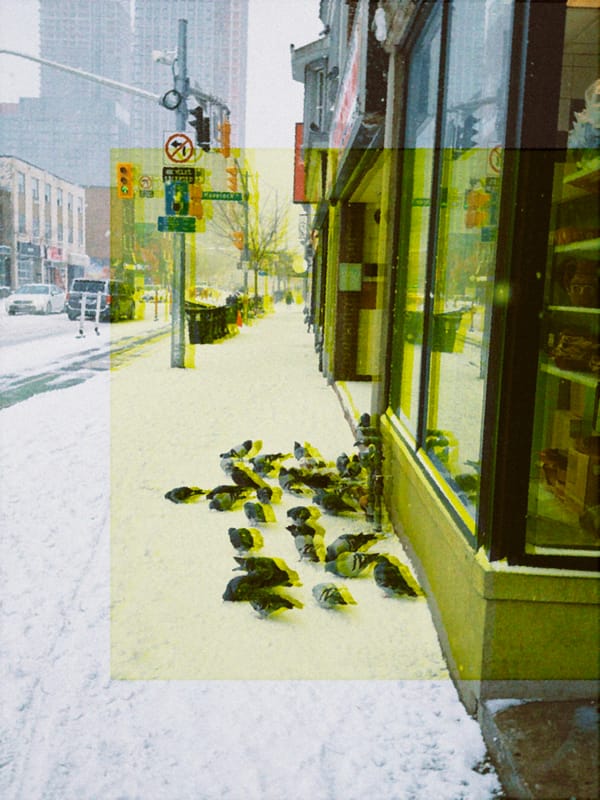Say you care less how I feel

Every interview I’ve done lately has been connected by a single, unexpected thread. A red string tacked to disparate faces weaving an unexpected story from happenstance and stray thoughts. This isn’t true of every conversation I’ve had, but enough of them have created a trend. I was recently a guest on Jeremy Bolm’s excellent The First Ever Podcast, and was also in conversation with the lovely and brilliant Carvell Wallace and in both facts came to light that have left me spinning over in my head. Both of these conversations were with people who use music to cast light on the world around them, both of them deeply curious people whose lives have been guided in some way by music that has burrowed into them and never escaped the walls of their foundations, and both of them — like me — have mothers who listen to Dwight Yoakam.
My mom listened to Dwight — always Dwight to her — in the kitchen while she baked and cooked. I can see the sunlight, shining through the skylights that have since been removed and boarded over, carving lines of light onto the white marmite countertop of the island in our kitchen. Covered in flour, a cutting board and measuring cups scattered throughout. Occasionally a tattered and well-read recipe book, but more often scraps of paper that held notes and fragments. A lot of recipes for her are muscle memories. Extensions of a lifetime of afternoons just like this one. Dwight Yoakam playing on the stereo in the corner, gone now too, like the sun from boarded over skylights. My mom telling me stories about him, what his music means to her. How handsome he is with the hat, how drastically that changes without it. I was a punk rock kid who made a point of making sure people saw me talk about not liking country music, but I loved hearing it through the stereo at home while my mom talked about it. Where no one could see me with my guard down. My mom making food she couldn’t even eat.
My mom has been chronically ill most of my life, and it’s manifested in numerous ways for her, not the least of which is limiting what and how much she can eat. In recent years, she’s barely able to eat anything solid. But she is always there in the kitchen, happily making food for family that surely taunts her with aromatic memories. She likes to be in the kitchen, finds it calming and cathartic to have some control over a tangible idea. That she can take flour, eggs, baking powder. Turn it into something beautiful and perfect. That someone will cut into it hot and fresh, spread butter and jam made from berries picked from the patch behind the shed out back. Food as an act of love, that gives her mind something to focus on that isn’t the incessant pain she lives with every minute of every hour of every day.
I think about my mom in the kitchen, and the rare moments we spent there together. The years my sister and I took over making holiday dinners, my mom unable to help herself and hovering over my as I spread butter and herbs between the skin and flesh of a turkey to make sure I was doing it the way she likes to do it. The way she knows will taste good and whole for someone else. The way she makes it when Dwight is on the stereo. The way she makes it without reading a line of a recipe while telling me about Dwight playing in punk rock clubs in Los Angeles when Nashville proved disinterested in him. Facts she knew offhand well before there was anything in the house that could provide an answer instantly. Facts that were important because they were about something so loved it needed to shared. Facts like a recipe that build together into something beautiful.
It’s true, for the most part, that the Kentucky-born, Ohio-raised Dwight Yoakam struggled in Nashville when his career was looking to launch. In the early 80s, he played in tones that reflected the roots of his heart, more honky tonk and bluegrass than pop, and it was harder to break through with the earnest edge in his voice. Where Nashville proved challenging, Los Angeles offered opportunity to hide behind the veneer of Cowpunk to get clubs invested in the more blue/bluegrass/honky tones of his songs. Meeting and working with Pete Anderson, Dwight became the man who emerged from my mom’s stereo among so many others, releasing Guitars, Cadillacs, etc, etc in 1986 and breaking through with a cover of a Johnny Horton track — “Honky Tonk Man”.
My mom is an exquisite cook who can make anything she desires for someone else's enjoyment, recipes she can’t remember discovering that are surely one of many collected in the complete works of Company's Coming recipe books help in sequence on a bookshelf in the basement. She hasn’t opened one in years because she no longer needs to, but they live down there anyway. Reminders of where it all began.
My bedroom, when I still lived at home, was down there too. I moved down to the basement when I was a teenager, connected a Playstation and a Nintendo 64 to the family TV and made them my own. The bookshelves that now hold cookbooks once buckled under the weight of my own CD collection, where I hoarded and obsessively cataloged records bought at the used record store — Deja Vú Music — in downtown Whitehorse. That record store, gone now too. That basement is where I discovered myself in private, behind a closed door with headphones on. Pouring through lyrics and memorizing songs the way my mom did recipes and facts about Dwight. Where I would hide when I came home drunk and high, laid in bed with my headphones on, disassociating in the dark.
I never thought I could cook anything, and when I moved out and away from home I became obsessed with the world of fast casual dining that opened up to me. At home, in the Yukon, we had limited options; McDonalds, a Pizza Hut with the good lunch buffet, Taco Time for a year and change, and a Dominos where friends delivered pizzas as careful cover for their side hustle of slinging drugs to whoever was ordering off the secret menu. Outside there was everything, and it was all I wanted. I craved the salt and sugar that arrived in minutes, adored the ease of ordering. I craved them the same way I did so many other things, and in the same way these cravings became something more. Cravings that become urgent, that linger noisily in your brain like a petulant man at a coffee shop demanding they open early just for him. The way my brain thinks of the way clinks against a rocks glass holding brown liquor, or the way a cigarette feels good the first few seconds of every terrible minute they burn on your lips.
The day I quit drinking, 2300 days ago now, I listened to Dwight as I walked to get a tattoo. I smoked a pack of cigarettes to burn away the urges in my mind, and all their terrible seconds added up. I have quit and started smoking again more than once in my life, and it has been a yea and change since I had my last one. Dwight became a tether to the memory of a day cast in lost sunlight, and I remembered how it felt to be so young and to be so happy to just sit and watch my mom make food on the counter. Food I would eagerly eat, scones and bread and elaborate dinners. Food I missed.
I listened to Dwight — always Dwight to my mom — as I walked down the street, burning cigarettes under my heel. How the twang in his voice hit me in the chest each time, how it could be so jubilant one second and remorseful the next. A voice lived in like an old coat hung on the wall. One never quite perfect for any kind of weather but one you’ll want to wear all the same. I thought about all the years I spent pretending the music from my mom’s stereo wasn’t hitting me the same way it had for her. How I watched her hands knead dough, how the sun seemed to get brighter whenever “Streets of Bakersfield” (featuring Buck Owens, who emerged from retirement to duet with Yoakam) came on. How I could see the music make my mom’s movement lighter somehow. Like this meant everything to her.
The salt and sugar has always claimed me, and fast food has been a lingering addiction I refuse to battle. The ease of ordering and the quick release of endorphins. I’ve had a bad day maybe, received some hard news. Stressed out. Overworked. Tired. Sore. Sad. Lying. Taco Bell down the street. McDonalds down the street. I make a show of it, talk a big game about the shitty food that I eat, that makes me feel bad. I eat it because I want it to fix me, I need it to fix me. Someone mentions it in the morning, and I will spend the day thinking about it. Surely this time it will work. This time it will feel like I need it to. It’s a need. Urgent. Just this one time though, and then I can stop. Then I won’t need it anymore, because I will be complete and whole and perfect and then I won’t need to be fixed by anything I can drink or eat or burn for seconds on my lips. Then I’ll be done.
It’s not an addiction like drinking is for me, like smoking is. It doesn’t threaten to consume me, but it ruins me all the same. My health has been not great at times this year, despite testing and scans and turning up nothing. I take medication to manage the symptoms we can find, the stomach acid turning against my body. When I eat fast food now, I eat like I want to die, like I want each bite to be my last. Like I wanted drinking to kill me.
There’s a trick I have. I know when you say “I have a trick”, it kind of ruins it. Like a magician walking out on stage and showing you the smoke in their sleeve, but it’s a trick that works for me. When I do something that makes me feel better in whatever little way that it does, I tell myself the reasons why I like it. I tell myself stories about what it means to me, where it places me. I catalogue my body in place when it happens. When I quit drinking, I told myself how much I loved each sip of whatever loosely flavoured water I was drinking as an alternative, until eventually, it became a truth I no longer needed to tell myself. When I stretch in the morning, I take note of how my injured spine feels relieved and when I cook, I tell myself how much better I feel. How my body doesn’t feel like it is dissolving itself from the inside. How many things I can make without looking at a book or a piece of paper. How my muscles follow lines drawn by my mother on a table so many years ago. I am trying to be better at practicing my own trick. I am trying to be open about always finding new things to struggle with, because there is always something new.
I’ve taken to talking to people about Dwight — always Dwight to my mom, and also me — more in the last few years. Maybe because I am less afraid of being seen than I ever used to be. Maybe because he has come to mean more to me in distance from family and the past. Maybe because Dwight Yoakam makes fucking great records and I no longer have to pretend otherwise. Not everything he has ever made is perfect, because that is not true for anyone, but when he hits, he hits like so few others. His songs like hands turning flour on a perfect afternoon, making something to inspire joy and life in whoever is there to find it. Songs that make your feet move like it’s their first day on legs. Exuberant and full of life. Ballads that will tear the heart from your chest and show you just where the cuts have gone deep. Songs that feel like the memory of a stereo long lost. Songs that feel good, that are not always perfect, but feel like the life you want to remember leaving behind.




